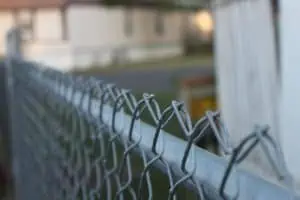Choosing the Right Type of Wood for Fencing
Choosing the right wood is important for your fence. It can make the difference between a beautiful, long-lasting fence and one that will be a liability for years to come. It can also affect the look of your home. It is essential to choose the right type of wood for your fence based on your needs and budget, as well as your personal taste.
(Looking for a “brick removal fence“? Contact us Today!)

Redwood is a common option for wood fencing, and it has several benefits that make it an attractive choice. It is durable, weathers well, and has a unique look that many homeowners love. However, it can be expensive and requires staining to preserve its beauty.
Cedar is another popular wood for fencing because of its rot-resistant properties and resistance to insects. It is available in many different types, and it can be treated with a variety of finishes to increase its durability. It is naturally a brownish color, but it can be stained or painted to create a customized look.
Cypress is an attractive option for fences, but it can be difficult to work with and may need to be stained after installation. It is a softwood, so it can be susceptible to rotting and insect damage if not dried properly.
Pressure-treated wood is another popular option for wooden fences, and it comes in a variety of colors. It can be painted, stained, or sealed to achieve a custom look.
Douglas fir is more expensive than pressure-treated wood, but it can be less expensive than Western Red Cedar. It is available in a range of shades and can be color-treated to mimic the look of cedar or redwood. It is also treated to resist rot, termites, and decay.
Pine is another popular option for wooden fences, though it is not as durable as redwood or cypress. It is available in a variety of yellow or white shades and can be treated with paint or stain to customize its appearance.
Spruce is another inexpensive and widely available option for wooden fences, and it works well in damp climates. It can warp, however, and it may be more prone to insect damage than other woods.
Composite is an environmentally friendly alternative to traditional wood that is often made from recycled materials and wood fiber. It is a great way to save money and reduce your environmental impact.
Ipe is another tropical hardwood that is a great choice for horizontal fences. It can withstand harsh weather and has a close, uniform grain. It is resistant to twisting and warping, but it is not as durable as other options like redwood or cypress.
Other woods for fencing include spruce, hemlock, balau, and composite. It is recommended that you consult with a professional fence contractor to determine the best type of wood for your fence project.
Cedar is an excellent wood for fences because it is rot-resistant and repels insects with its natural oils. It can be painted or stained, but it is usually treated to keep it looking its best.

